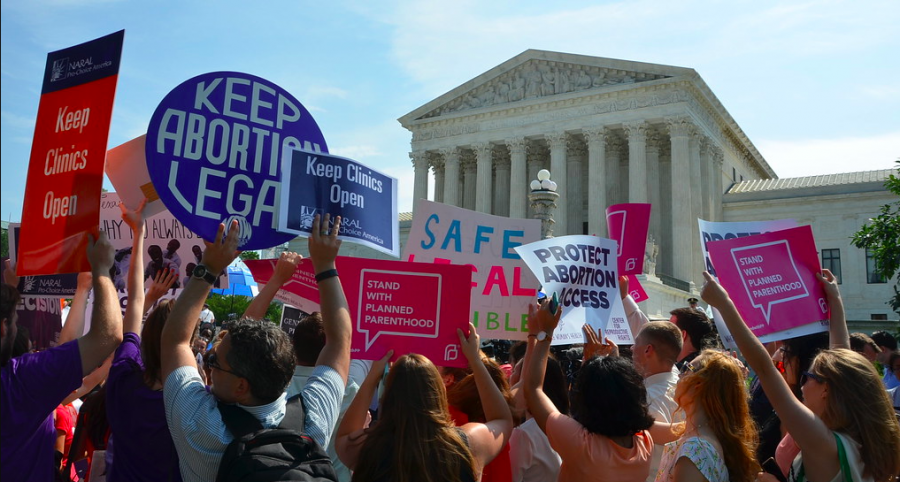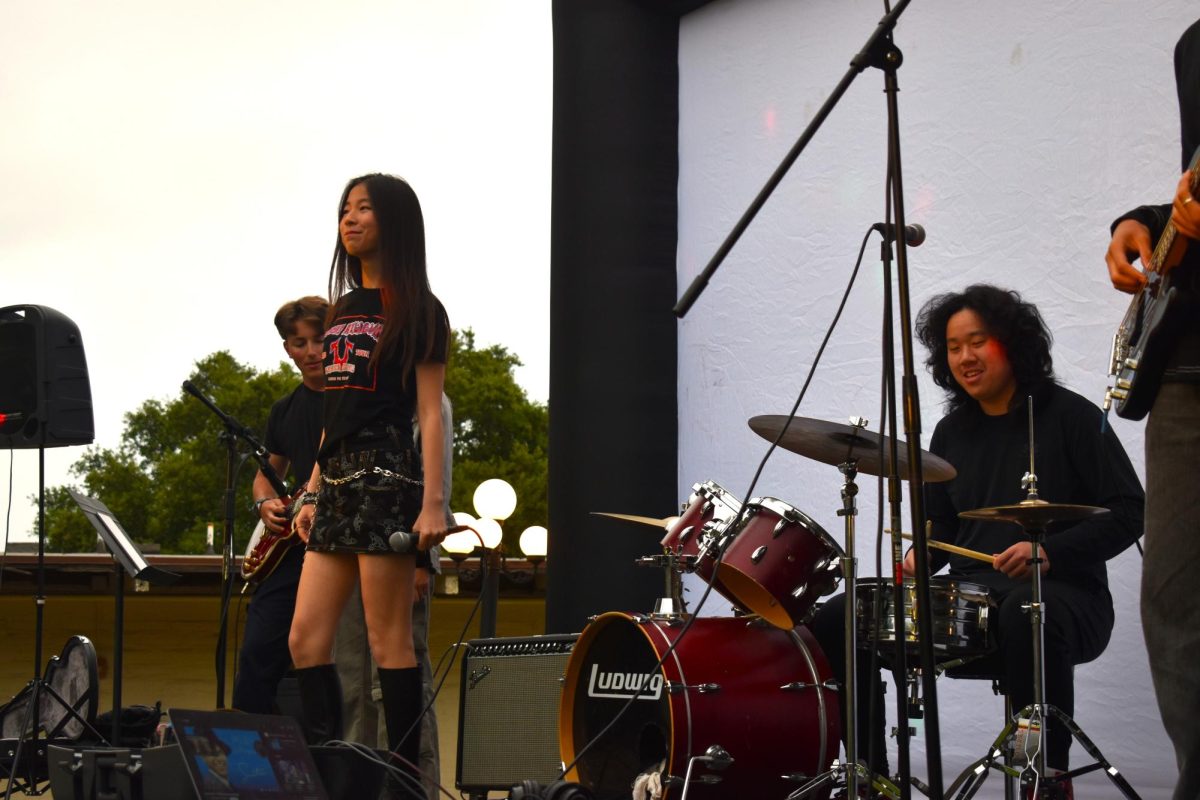Recently, Texas has been in the national spotlight after passing several severe restrictions on abortion that sparked protests around the nation.
The Texas government enacted a law that prohibited abortions once a fetal heartbeat could be detected, which falls at around six weeks of pregnancy. In an attempt to dodge protests from the federal government, the law decreed that private citizens could sue abortion providers or anyone else suspected of helping someone get the procedure under the claim that they are “aiding and abetting” in a crime.
The ban did not make any exceptions for cases of rape or incest. Only in emergency medical cases where the pregnancy directly threatened the mother’s life would the six-week cutoff be excused.
Supporters of abortion rights condemned these restrictions, mainly because most women do not find out they are pregnant until after the first six weeks. In early October, protestors gathered at the Texas State Capitol in Austin, Texas to voice their dissent and demand that the federal government act against the Texas government.
“As a woman in Texas [the abortion ban] affects me because, although I’ve never experienced something with abortion, it’s a right that I have that’s being threatened,” said Angela An, a Texas resident. “I should be able to have the right to do what I want to do with my body. [The abortion ban] is not gonna stop abortion. It’s just gonna stop healthy and legal abortions.”
Her words echo the statements of thousands of women across the nation who spoke out against these restrictions and demanded that the federal government take action against the state of Texas. A few weeks after the ban was reinstated, the federal government joined forces with abortion providers to argue their case against the Supreme Court on November 1st. A verdict has yet to be reached.
Abortion has historically been a heavily debated subject. Ever since the monumental Roe v. Wade case in 1973, when the Supreme Court ruled that abortion is federally protected, the procedure has remained a contested right. People on both sides of the argument are adamant that their position is the correct one, with opposers of abortion declaring that it is unethical and supporters claiming that the right to get an abortion falls under bodily autonomy, the right to choose what happens to your own body.
In a community like Webb that values respectful, open discourse, it is vital to understand how to approach sensitive topics like abortion. Conversations around subjects where participants feel heavily invested are challenging, but many Webb students are passionate about sharing their opinions.
Raising awareness is the first step towards sparking a meaningful conversation that gives people space to voice their beliefs without feeling attacked or judged. Students who attend Diversity, Equity, and Inclusion (DEI) workshops or involve themselves with Empowering Student Voices Initiative (ESVI) have taken steps to learn the best ways to have these relevant discussions.
“In my experience with ESVI, I think that the best way to discuss controversial issues is calling people into the conversation and using certain methods that we learn in DEI workshops,” Isabella Llorens (‘22) said. “I do think that the abortion ban is a topic that needs to be discussed at Webb because it is an injustice to women in the South, and I think that is something that needs to be acknowledged. People need to know that this is happening. So, I don’t think it’s too far or inappropriate to talk about it.”
“In order for us to have conversations, I think there needs to be some sort of understanding between the two people,” Fran Torres (‘22) said. “I think just attacking someone and being aggressive right at the beginning will only make the other person more aggressive towards you and you know productive conversation isn’t going to happen. Coming from a place of understanding and just being like ‘this is where you come from and I get that, but I think you’re wrong’ and then you explain why.”
Fran brings up a necessary point when engaging in a fruitful discussion. Bombarding someone with argument after argument instead of listening to what they have to say only increases tensions and establishes a hostile environment that discourages people from discussing controversial topics again.
Fran’s statement also introduces the ambiguous nature of males involving themselves in conversations surrounding abortion. Although some argue that their opinions on the matter are less valid because abortion rights do not directly interfere with their bodily autonomy, men can still impart a diverse range of perspectives that help us better understand the issue of abortion as a whole.
“Maybe I could provide perspective from a man, like how normally men would feel about this conversation, but I don’t think any of my answers are concrete and serious,” Fran said. “It’s just more so ‘this is the perspective of a man’ instead of being like ‘I’m right, you’re wrong.’”
The next step in establishing a constructive learning environment is to maintain an open mind. A common problem that passionate students run into is implicit bias, where they reject any information that differs from their original opinion and only listen to those they agree with.
“I think [students] could focus more on the objective side of the issue, not more on the subjective side,” said Dayun Suh (‘24), a member of Webb’s debate team. “So they could talk about stuff that’s really happening instead of their own thoughts. I think that could reduce sensitivity issues.”
Although maintaining strong opinions is important, productive discussions require some level of tolerance and objectivity. This goal can be met by staying informed on the topic and relying on facts to inform your opinion instead of letting your beliefs dictate what information you consume.
“It’s difficult to talk about complicated subjects,” said Dr. Theresa Smith, Associate Head of Schools and Honors Constitutional Debates teacher. “People have a lot of emotions and feelings about them. I think it’s really important that our students leave Webb knowing all of the complexity of issues.”
“When we talk about those topics in Constitutional Debates, we always say the framework is we want to understand all the different sides of the issue so that we can have our own opinions and beliefs. I think if we go into it with that idea, not that you’re trying to convince everyone of your point of view, but that you’re trying to learn the complexity of the issue, it makes it a little bit easier.”
In addition to fully informing yourself before discussing a dense, complicated issue, Dr. Smith highlights the importance of seeing the situation from all sides. After understanding why people may take different stances, we can begin to better understand the subject matter.
According to The 19th, Americans are relatively evenly split on the issue, with 46% supporting the new law, 47% disagreeing, and 7% remaining undecided. This poll also found that men are more likely to agree with abortion bans than women; 53% of men and 39% of women favor the restrictions, proving that abortion remains a contentious topic.
As the story of the Texas abortion ban develops, we see just how necessary it is for the Webb community to continue engaging in relevant conversations about the world around us. Disagreement should be welcomed instead of suppressed. Shying away from topics that make us uncomfortable or push us to expand upon our previously held knowledge will not lead to progress. We need to focus on creating productive spaces that foster inclusivity, acceptance, and awareness so that we can collectively learn from each other and stay informed about current issues.









